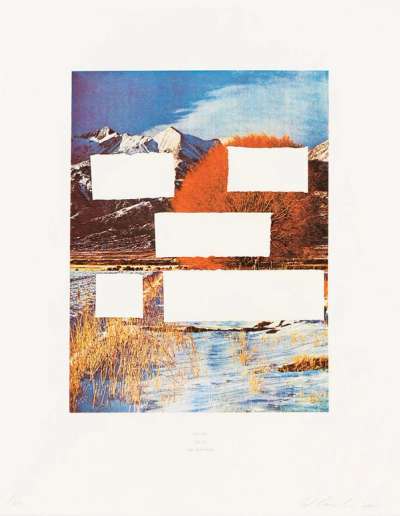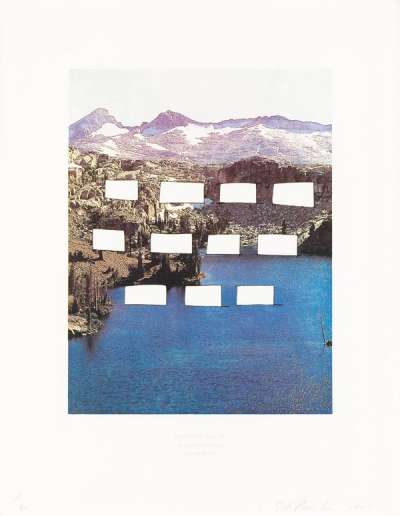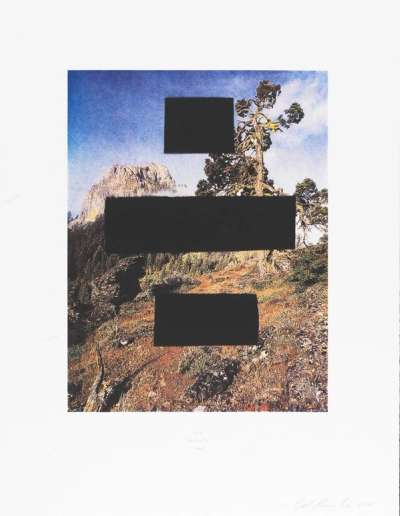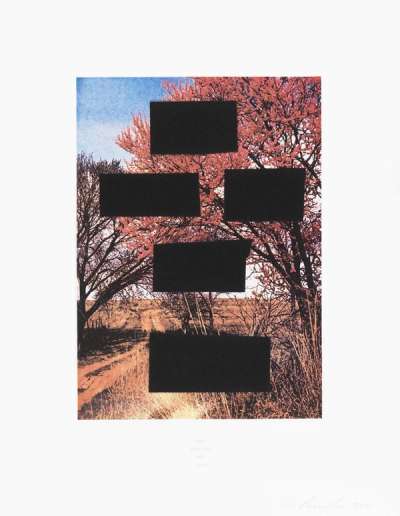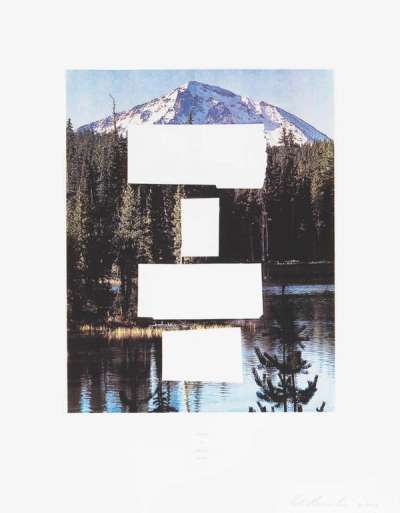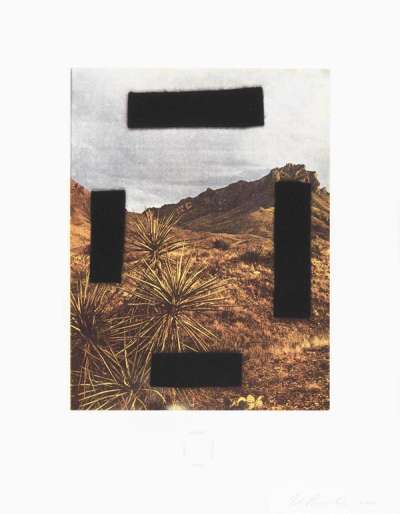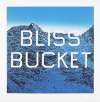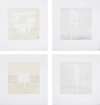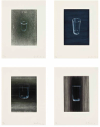Country
Cityscapes
Made in 2001, Country Cityscapes is a print series by Ed Ruscha presenting a compelling juxtaposition of rural tranquillity and urban crime. The series is composed of provocative titles, including Noose Around Your Neck and Do As Told Or Suffer. Navigating the dichotomy between the serenity of natural landscapes it depicts and violent messaging, each print features foregrounded blank shapes which are emblematic of censored ransom notes. Cryptic and innovative, Ruscha’s composition in Country Cityscapes invites a reflection on censorship and cultural narratives.
Ed Ruscha Country Cityscapes For sale
Country Cityscapes Value (5 Years)
Ed Ruscha's Country Cityscapes series has historically shown more modest results compared with the artist’s wider oeuvre, with auction prices ranging from £1520 to £2661. Average annual growth has remained modest at -2.73%, with certain works seeing declines in value. Over 5 total auction appearances, average selling prices have held steady around £2201. This series appeals to collectors seeking accessible entry points into Ed Ruscha’s print market.
Country Cityscapes Market value
Auction Results
| Artwork | Auction Date | Auction House | Return to Seller | Hammer Price | Buyer Paid |
|---|---|---|---|---|---|
 You Will Eat Hot Lead Ed Ruscha Signed Print | 24 Oct 2024 | Forum Auctions London | £1,700 | £2,000 | £2,500 |
 Be Careful Else We Be Bangin' On You, You Hear Me Ed Ruscha Signed Print | 3 Oct 2021 | A.N. Abell Auction Company | £2,040 | £2,400 | £2,900 |
 It's Payback Time Ed Ruscha Signed Print | 13 Oct 2018 | Blackwell Auctions | £1,275 | £1,500 | £1,750 |
 Do As Told Or Suffer Ed Ruscha Signed Print | 13 Oct 2018 | Blackwell Auctions | £2,253 | £2,650 | £3,050 |
Sell Your Art
with Us
with Us
Join Our Network of Collectors. Buy, Sell and Track Demand
Meaning & Analysis
The Country Cityscapes series by Ed Ruscha offers a compelling investigation into the dichotomy of the visible and the obscured, the said and the unsaid. Through artworks such as Noose Around Your Neck, Be Careful Else We Be Bangin On You, You Hear Me, It's Payback Time', 'You're A Dead Man, You Will Eat Hot Lead, and Do As Told Or Suffer, Ruscha delves into the American West's cultural and physical landscape, challenging the viewer to reconsider their preconceptions and the ways in which language shapes our understanding of environment.
Each piece within the series employs the technique of censoring cowboy catch phrases from the Western movie genre, rendering them as blank shapes within the landscape. This act of redaction not only draws attention to the power of words but also to their absence, creating a tension between what is shown and what is hidden. The censored titles, aggressive in their original form, become abstract elements that disrupt the picturesque scenes behind them, suggesting a critique of how mass media and cultural stereotypes distort our perception of the American West.
Ruscha's use of censored text as both a visual and conceptual element echoes the cut-and-paste aesthetics of ransom notes or the redaction seen in sensitive documents, thereby imbuing the work with a sense of mystery and intrigue. This approach highlights the artist's fascination with the relationship between the appearance and disappearance of words, and how meaning is constructed through language's sequential and interchangeable components.
Furthermore, the series underscores the importance of shared cultural references in understanding and interpreting landscapes. By adopting generic postcard scenes of the American West and overlaying them with redacted catch-phrases, Ruscha critiques the commodification of nature and the imposition of urban-generated clichés onto rural landscapes. The series thus serves as a reminder of the pervasive influence of cultural forces on our perception of the natural world, challenging the viewer to look beyond stereotypical narratives and appreciate the complexity of the landscape unencumbered by preconceived notions.
